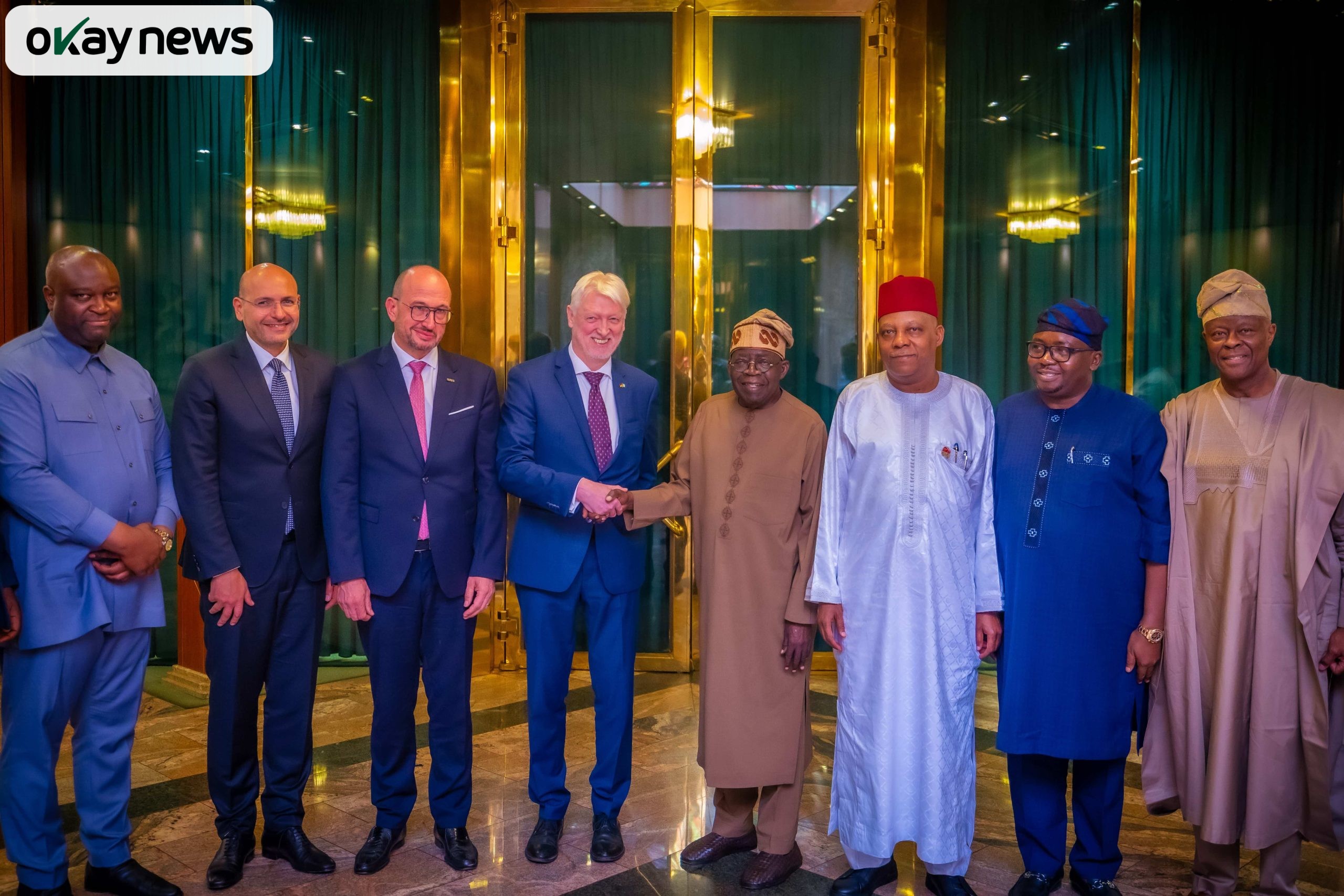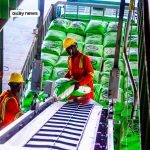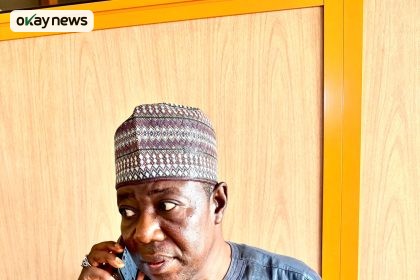President Bola Ahmed Tinubu has reaffirmed his administration’s full commitment to the Presidential Power Initiative (PPI) in partnership with Siemens Energy, declaring that electricity remains the backbone of Nigeria’s economic transformation agenda.
Speaking during a meeting with a Siemens Energy delegation led by Dietmar Siersdorfer, Managing Director for the Middle East and Africa, at the State House, Abuja, on Monday, Tinubu said Nigeria’s progress in industry, education, healthcare, and transportation depends largely on sustainable power.
“There is no industrial growth or economic development without power. I believe that power is the most significant discovery of humanity in the last 1,000 years,” the President said. “I appreciate the partnership on the initiative. The progress of the project to date is notable, and we can feel it. But it is not where we want it to be.”
Okay News reports that the meeting was attended by Vice President Kashim Shettima, the Coordinating Minister of the Economy Wale Edun, the Minister of Power Adebayo Adelabu, and the Special Adviser on Energy Olu Verheijen.
President Tinubu expressed confidence that the completion of the ongoing phases of the PPI would not only stabilize Nigeria’s electricity grid but also strengthen the country’s industrial and economic competitiveness across the continent.
He said, “Our education, our healthcare, and our transportation all depend on energy, and without power, it is an impossible objective. We are taking it very seriously.”
The President directed the expansion of some major transformer substations from two to three phases to boost electricity supply, adding that his administration would continue to provide the necessary resources to ensure the project’s completion.
“We are all inspired and happy. This is what we want to achieve on the continent. We want everyone to see the glory of our economic recovery and banishment of poverty,” Tinubu said.
Providing an update on the project’s implementation, Minister of Power Adebayo Adelabu said the sector had achieved several key milestones under the current administration, including decentralization and new investments following the Electricity Act 2023.
He revealed that since Tinubu and German Chancellor Olaf Scholz signed the Accelerated Agreement at COP28 in Dubai, the PPI had recorded major progress across its phases.
“Under the Pilot Phase (Phase Zero), Siemens Energy has successfully delivered and commissioned 10 units of 132/33kV mobile substations, three units of 75/100MVA transformers, and seven units of 60/66MVA transformers across key load centres nationwide, which have added 984MV of transmission capacity to the grid,” Adelabu said.
He disclosed that in December 2024, the Federal Executive Council (FEC) approved the Engineering, Procurement, and Construction (EPC) contract for Phase One, Batch One, covering five key substations in Abeokuta, Offa, Ayede-Ibadan, Sokoto, and Onitsha.
Plans for civil works mobilization are finalized, with concurrent manufacturing of equipment already underway. Two of the five substations, Adelabu added, are targeted for completion by the end of 2026.
The Power Minister further said that Phase One, Batch Two will involve constructing and upgrading 16 substations nationwide, expected to deliver a cumulative impact of 4,104 megawatts.
Wale Edun, Nigeria’s Finance Minister and Coordinating Minister of the Economy, emphasized that completing the PPI will enhance the ease of doing business, attract private investment, create jobs, and reduce poverty.
Siemens Energy’s Dietmar Siersdorfer confirmed that two of the ongoing substations are on track for delivery by 2026 and announced that the company has begun constructing a training centre to build local capacity in electrical engineering, technology transfer, and job creation.
“The PPI is not just a project but a platform for long-term development and prosperity,” Siersdorfer said. “Nigerian professionals will be engaged directly in the five project sites, while thousands of local jobs will be created in the surrounding communities.”
He added that the initiative would transform Nigeria into a regional power hub, reinforcing the strength of Nigeria–Germany relations.
Johannes Lehne, the representative of the German Ambassador, assured President Tinubu of Berlin’s continued support in advancing Nigeria’s energy modernization and infrastructure development.







